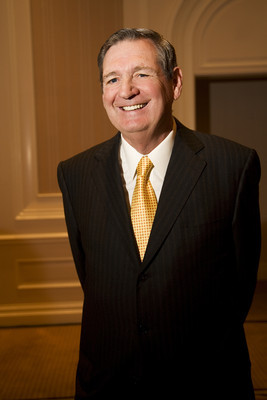Former LV doctor details complaints concerning Desai
Almost immediately after Dr. Charles Cohan opened his Las Vegas practice in 1994, the gastroenterologist became suspicious of another practitioner in the speciality, Dr. Dipak Desai.
Cohan provided a chronology of his concerns in March to Assemblywoman Sheila Leslie, chairwoman of the Legislative Committee on Health Care. The Review-Journal obtained a copy of this correspondence.
"During the entire time I was in Vegas I had a continuous string of patients coming to my office, unhappy with the care they had received from Desai," he wrote Leslie on March 19.
The physician, who now lives in Pennsylvania, initially did not cooperate with the Review-Journal's efforts to tell his story, saying his wife feared for the safety of their family.
But he now believes the public deserves "to get a sense of the corruption in Nevada."
"I hope it eventually all comes out," said Cohan, who is cooperating with law enforcement investigations of Desai and practices at his clinics.
Cohan wrote Leslie that he first became involved with Desai and the Board of Medical Examiners in January 1996.
He had filed a complaint with the board, he said, about Desai advertising that all members of his practice were board certified in gastroenterology when they were not. Though he said his complaint was a "black-and-white case, fully documented," he received notification that the investigative committee had reviewed his information and dismissed the case.
"Little did I know at the time," Cohan wrote to Leslie, "that Desai was not only a voting member of the board, but also its secretary treasurer and the chairman of the investigative committee."
Cohan told Leslie that he filed a second complaint in July 1996 after the new Yellow Pages came out with the same false advertising. This time the board levied a $2,500 fine against Desai, the only formal state action ever to be taken against the physician until the recent suspension of his license. A $5,000 fine was given to Dr. Mahendra Defonseka, a member of Desai's staff.
A former board member who served with Desai said the evidence was "so black and white ... there was no way it could be totally ignored."
Desai, the board member said, "should have recused himself from the investigative committee. It was totally unethical. He was screening complaints against himself."
Cohan said he wrote then-Gov. Bob Miller and asked that he remove Desai from the board. Cohan said he never received any response. For his part, Miller said he doesn't remember any correspondence from Cohan.
"Call me old-fashioned," Cohan told Leslie. "I just don't believe that any voting member of the board should be allowed to stay on the board once he has violated any of the statutes that he was appointed to uphold and defend."
Cohan informed Leslie that he filed a third complaint with the medical board in November 1996. He said he learned that Desai was "seeing patients with a five-minute face-to-face encounter, barely examining the patients, and then setting them up for procedures."
Cohan said he submitted to the state board bills from two patients charged for comprehensive examinations that would have taken around an hour each, yet they swore to him they were seen for about five minutes.
The complaint alleging fraud was dismissed by the medical board, Cohan said. He said he was questioned by authorities after he sent that same information to the FBI.
Cohan also said he submitted a 400-page complaint to the state attorney general in 1998, which was dismissed.
The April 1999 dismissal letter obtained by the Review-Journal from then-Chief Deputy Attorney General Richard Linstrom to Larry Lessly, then-executive director and special counsel of the medical board, said investigators were unable to substantiate Cohan's charges.
Also receiving a copy of the letter was Miller, who had recently left office and was listed as Desai's attorney.
Cohan suspects Miller was behind the dismissal of the state investigation, although he acknowledges he can't cite any evidence to support that opinion.
Miller said he "absolutely" denies Cohan's charge. He said he can't even remember doing any legal work for Desai.
"I may have just made a telephone call for a friend and that's why I was listed as his attorney," he said.
Linstrom and former Attorney General Frankie Sue Del Papa both deny that Miller pressured them to scuttle the probe.
"I can unequivocally say that never happened," Del Papa said.
Linstrom said the attorney general's investigators are "bulldogs on health care providers. If there was anything, they wouldn't have cut him (Desai) any slack. You have to be concerned with them (investigators) being too aggressive."
According to Linstrom, he had a discussion with Miller about the case only after it was over.
Linstrom, Miller and Del Papa say they can't recall ever seeing Cohan's complaint. And Nicole Moon, a spokeswoman for the attorney general's office, said the complaint cannot be found. Cohan would not let the Review-Journal see his copy of the document, saying he is sharing it only with authorities because it contains the privileged health information of patients.
Cohan's self-described "pursuit for justice" involving Desai abruptly ended in 1999.
"One day in February or March 1999 I received a phone call from a man who would not identify himself," Cohan wrote Leslie. "He told me that if I did not stop this activity, then me or my wife or my 2-year-old boy was going to get hurt."
In May 1999 the Cohan family left Las Vegas.
"My wife was scared to death," Cohan recently told the Review-Journal. "Of course, I can't prove that Desai was behind it. But it's hard not to think so."
Contact reporter Paul Harasim at pharasim@reviewjournal.com or 702-387-2908.


















